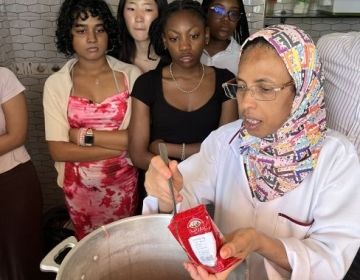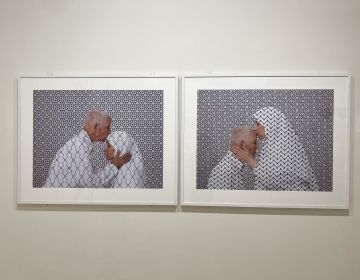Moroccan Women's Football Team Making History
Football, football, football! Football, known as soccer in only a few countries, finds its origins all the way to the time of the Aztecs. However, the game we know today took shape in the 19th century when the "Cambridge rules" were adopted in 1848, proposed by the University of Cambridge. By 1870, the "no hands except for the goalkeeper" rule was firmly in place, and the sport had already become a global sensation, spreading along with its rules. In 1904, FIFA (Fédération Internationale de Football Association) was founded, and today, its World Cup surpasses even the Olympics in viewership.
Widely considered the most universal sport, it is at the forefront of everyone’s mind with the FIFA Women’s World Cup in New Zealand and Australia. This year’s cup is breaking records, but many are broken just in Morocco. The Atlas Lionnesses, the Moroccan women’s national team, is the first Arab team to compete in the Women’s World Cup. This feat is on the heels of the men’s national team’s advancement as the first Arab and first African team to the semi-finals in the 2022 Qatar World Cup. Even before that, the Lionnesses hosted and reached the finals of the Africa Cup of Nations, where South Africa took the title.
Now, Morocco is pitted against two-time World Cup winner Germany in the group round. While the odds might seem stacked against them, Morocco's women's team isn't backing down. They have already broken records, with three of the female Arab referees officiating the Women's World Cup hailing from Morocco. This change comes primarily from the popularity growth in female football teams, which create a need for more female officials. The 2022 Africa Cup of Nations was also the first time the cup held all female referees, and Morocco had the honor of hosting such a record.
Morocco’s national organization, the Royal Moroccan Football Federation, has contributed to this success as well. Last year they incentivized professional football players by a raise in pay, as well as establishing youth championships and building new club training centers.
The cards were against Morocco as they were seeded in the 72nd spot, and Germany in the 2nd. Two own goals by Morocco added on to four by Germany resulted in a 6 - 0 win, disappointing the record-breaking team. However, the team is far from discouraged. In addition to being the first Arab team and having three Moroccan referees in the World Cup, they also are represented by the first hijab-wearing player, Nouhaila Benzina, in a senior level match.
The Atlas Lionesses, together with Morocco, have much to be proud of, and their journey has only just begun. With more awareness, funding, and the increase in love for football, the players are on track for inspiring the world with future wins.
Author: Abigail Clifford
Related Posts
On Fridays, We Eat Couscous
Couscous is a traditional Moroccan dish, eaten on Fridays - the day of congregational prayer. Huge groups gather around one big table a eat the dish together, normally by hand... keep reading
I'm sorry / I forgive you: Finding Meaning in a Mirrored Image
This past week, I had the opportunity to visit the Mohammed VI Museum of Modern and Contemporary Art for the second time during my stay in Morocco. The museum, easily... keep reading
“Thank yo-”; “Mashi Moushkil!” - An Homage to Moroccan Hospitality
“Mashi Moushkil”, “Mashi Moushkil!”, “Mashi Moushkil?” Mashi Moushkil, (transliterated from Arabic), translates to no problem in Moroccan Arabic (Darija). If you ever visit the beautiful country of Morocco, you will... keep reading





